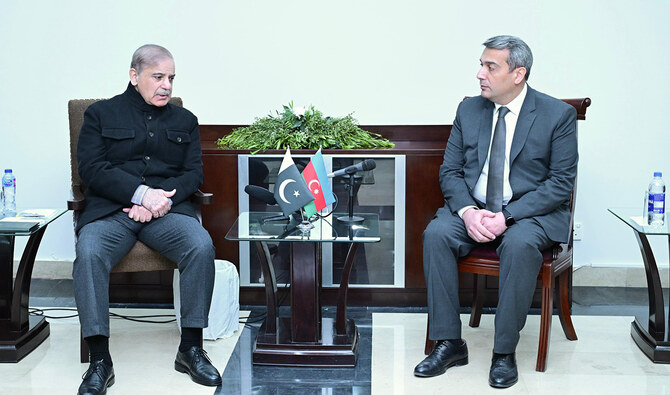KARACHI: Dubai, with its cosmopolitan culture, is home to many Pakistani celebrities and film festivals. However, the recent lockdown triggered by COVID-19 pandemic has brought the bustling life of these stars to a stand still.
Arab News had a chat with some of the Pakistani stars to know how they live through quarantine days, as the Gulf state struggles to tackle over 23,000 virus cases under a lockdown imposed since Marc 24 and gradually easing.
Acclaimed classical pop singer Sajjad Ali says Covid-19 lockdown has completely affected his work as “99% of the revenue generator for an artist is live performance.”
Rising to international fame through his singing talent in genres of semi-classical, pop and rock, Ali — who resides in Dubai for many years now — believes this is one of the first things that got affected by the pandemic and would probably be the last to restore once the threat is over.
The 54-year-old star said he had to cancel almost 11 concerts lined up in Pakistan, when COVID-19 hit the country late February. Moreover, his tour to North America, scheduled for March-April was also postponed indefinitely.
He was also expecting television appearances, shoots and radio recordings during the tour.
Ali said he is utilizing the time in quarantine in a productive way: “Being a very optimistic person, I’m working on new music, and educating my children, two girls and two boys, on their upcoming ventures. I am also super active on my social media platforms for my fans.”
Appreciating the measures adopted by the UAE government, the Pakistani star said he felt “safe and secure in Dubai” but he and his family choose to remain in isolation as much as possible.
Faisal Kapadia, 48, the lead singer of internationally famed band Strings though admits that UAE was actually handling the smart lockdown very well as the citizens go online to obtain their permit to go out for selected hours and back home after getting running their errands.
Kapadia said that although he had been residing in Dubai for many years, most of his work is in Pakistan as his other band members are settled there.
“Yes, my work is at halt at the moment as I can’t fly to Pakistan. The months before Ramadan (March and April) were completely lined up with gigs every week there, which got canceled due to the pandemic.”
For Faisal, this lockdown has been a chance to transform, “We were so consumed in our daily lives (before COVID 19) and actually running too fast. So, this lockdown has been good in a way that I have some time to sit down and think differently about life and yes, I’ve been spending a lot of time with my family, which is great.”
Kiran Malik, a well-known model also gained a lot of critical acclaim as an actor for her debut film “Pinky Memsaab” in 2018. Another two of her films “Zarrar,” opposite veteran Shan Shahid and “Money Back Guarantee” that also includes superstar Fawad Khan were supposed to release this year.
In times like these,Malik is more concerned for people who are homeless and needy, more than herself. “When the entire world is at a standstill, I’m not thinking about work that much as I just want everyone to be safe & healthy!”
Just like a lot of other people, 2020 was also important for Malik. “I was eagerly waiting for Zarrar especially, since it has already been delayed for three years. But I hope we get through this time as soon as possible.”
The model says she has been utilizing the lockdown period quite productively by keeping herself busy and positive; not missing out on her workout, spending more time with family, coming up with new recipes and reaching out to her family back in Lahore.
About the lockdown in Dubai, Malik said, “Though it has been partially over, the cases are still increasing, it’s not safe to get back to the older routine just now, so I won’t be taking any risks unless it’s something important to step out like for groceries etc.”
When asked what if she already knew about the lockdown beforehand, she said, “I would have dearly wished to see my mother and sister. That interaction would have made me even more determined to get through this. And to have a meetha paan from Lahore, as well.”
Shazia Ali Khan, the Dubai based director and producer of Pakistani film “Pinky Memsaab,” said her work was not much affected by the lockdown, as she was not on any outdoor projects during this time. “Luckily I was in the writing stage of my next venture so it’s actually forced me to sit down and write without distractions.”
Khan also teaches Film to Bachelors Program at Middlesex University UK, which is still on through distant learning program.
She said spending more time at home allows her to look after her personal self through exercise regimen, watching TV shows that were on her wish-list, reading, meditating and having a long chats with friends and relatives.
However, she said that “my work is collaborative and I will not go for first movers’ advantage until things as a whole improve regionally.”
Aleeze Nasser, a Pakistani actor and model born and settled in Dubai, started her acting career with feature film “Yalghaar” (2017). She said she wrapped up shooting of her next film Pakistani “Yaara Vey” just at the nick of time, which had to undergo post-production phase with a UAE based house.
However, the star said she was constantly in touch with the writers, producers, and composers to keep stay connected with work.
About the smart lockdown in Dubai, she said, “Dubai has implemented a very effective lockdown which leaves us individuals more responsible to take extra precautions to support the government in its endeavor.”
Nasser said there was not much she would have done if she had a prior notice of the lockdown. “In my situation, I don’t think there is much to prepare as professionally it all depends on a lot of outside factors, and personally too with God’s blessings, being together with my family at home, and no one is away in another country, has helped me in keeping happy.”
Haseeb Hasan, the renowned Pakistani director, whose recent play “Alif” (2019-20) is still getting rounds of applause because of its subject and presentation, has his living set up in Dubai while, works mostly from Pakistan.
Hassan, who also directed the record breaking film “Parwaaz Hai Junoon” (2018), was ready to go on floor for his next film “Aan“starring mega cast like Fawad Khan as lead with Sanam Saeed, Zara Noor Abbas and Javed Sheikh but the project came to halt because of the coronavirus pandemic.
“We were at the peak of our pre-production phase and almost ready for shooting from April 12 but after the announcement of lockdown, the dates of actors, availability of crew and other stuff are uncertain because of this current scenario. We can just wait till things get back to normal,” he said.
Haseeb, 43, is bound to work remotely from home as his all offices are also closed.
“We can only work on Research and development phase of our projects. So, the thought process is on. Moreover, I am also working on post-production of my web series,” he added.

















